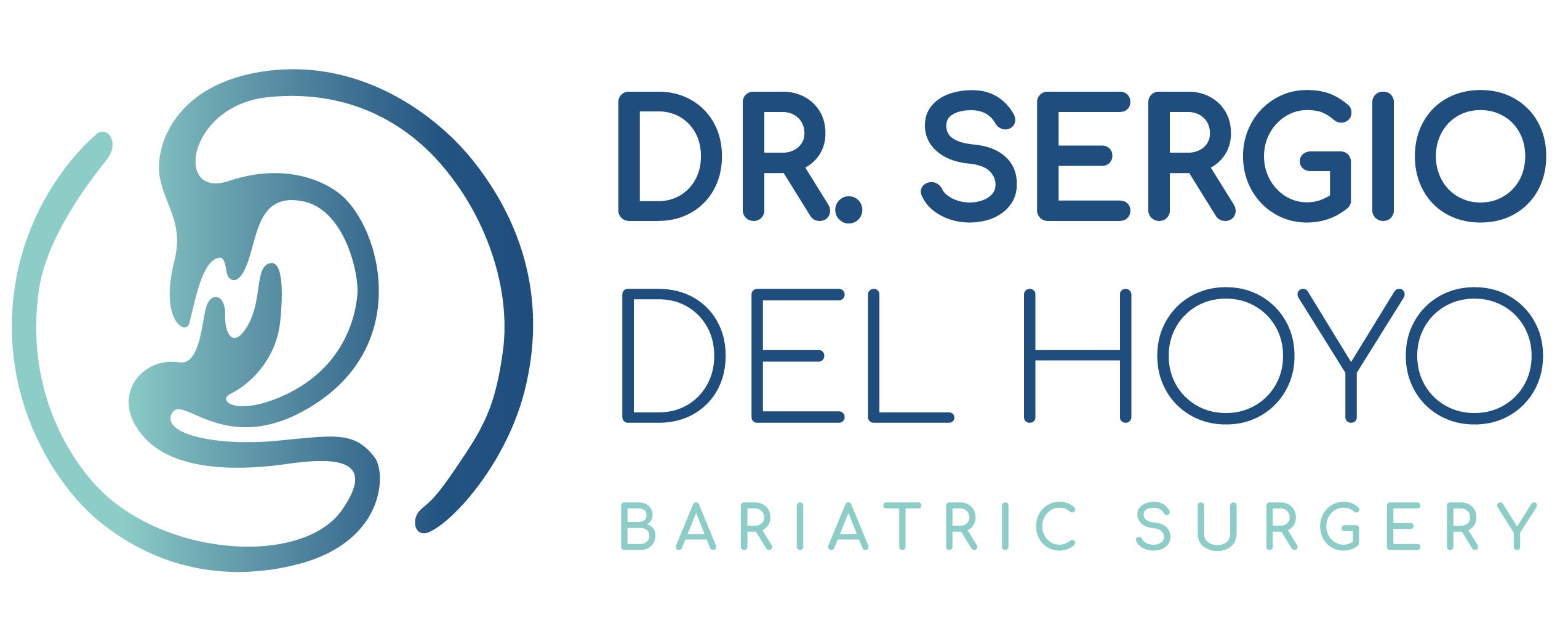Are you looking for information about Mini Gastric Bypass VS Gastric Bypass surgery? Both surgeries have their own sets of benefits. However, only a bariatric specialist can best judge your eligibility and the success rate of that procedure.
Gastric bypass surgery is weight loss surgery used to treat obesity. It is the most common surgery used for long-term weight loss and is usually the first step in a multi-step process. The Mini Gastric Bypass (MGB) is a variation on traditional gastric bypass surgery and is becoming more and more popular.
The Difference?
The bypass consists of making a small stomach to have a feeling of early satiety when eating, that is, feeling satisfied with less food, and also using the intestine to activate the metabolism and thereby make the surgery more powerful. In the traditional bypass, two connections are made in the intestine, which is highly indicated for patients who, in addition to being obese, suffer from acid reflux, with this they will also solve this problem.
The Mini gastric bypass is practically the same technique as a traditional bypass only with a single connection of the stomach to the intestine. It is an excellent option in bariatric surgery, very effective but not recommended in patients suffering from acid reflux.
Remember that when performing your surgery the certified bariatric surgeon who has experience in the procedure you are considering. Before making a decision, make sure you fully understand the risks and benefits of both interventions. Also, follow all pre-operative instructions to ensure a safe and satisfactory result.
You can enter the Mexican College of Surgery for Obesity and Metabolic Diseases to find certified surgeons like Dr. Sergio del Hoyo in this procedure.
Find here all the information about Dr. Sergio del Hoyo Galván
The Advantages of Gastric Bypass
The main advantage of gastric bypass surgery is long-term weight loss. Research shows that people who have a gastric bypass lose more than twice the weight of people who don’t. In addition, it has been shown that patients often maintain their weight loss for up to five years after undergoing the intervention. The mini gastric bypass offers the same advantages as the traditional gastric bypass, with a similar recovery time.
Before undergoing a gastric bypass or mini gastric bypass, it is important that you are aware of the potential risks and benefits associated with the procedure. It is also essential to seek out a qualified surgeon who can provide detailed information about the procedure and its risks. Patients should always discuss their health status with their doctor in detail before deciding whether.
The Ideal Candidate for Gastric Bypass Surgery
The ideal candidate for gastric bypass surgery is someone who has a body mass index (BMI) of 40 or more, some recent guidelines and articles on the practice of this obesity surgery already include people with even a BMI of 32 or more. with obesity-related health problems such as type 2 diabetes, high blood pressure, heart disease, and sleep apnea. Candidates must have a committed lifestyle that includes healthy eating habits and regular exercise to maintain long-term weight loss after surgery.
The best candidates for gastric bypass are committed individuals who have the time and resources to make lifestyle changes. The patient must be emotionally stable and psychologically prepared for the great changes that will result from this major surgery. For those who are motivated enough to achieve drastic weight loss, gastric bypass surgery is an excellent option.
Cost
The cost of gastric bypass surgery and mini gastric bypass varies depending on the specific case and the center where it is performed. It is important to research all applicable costs before making a final decision, and to be fully aware of insurance coverage and payment options.
Conclusion
In conclusion, fat bypass and mini-fatty bypass are two types of effective bariatric surgeries that offer numerous short- and long-term benefits for those who are morbidly obese. That being said, prospective patients should always consult their doctor before opting for any of them to understand all the risks and take appropriate precautions. In addition, you must consider the cost of the intervention to ensure that it is within your means. With proper guidance and care, these surgeries can be life-changing for those who need them.
It is important to remember that bariatric surgery is not a solution in itself, but only part of a long-term commitment to create healthier lifestyles. Healthy eating, regular exercise, and medical follow-up are essential components for successful weight loss after any type of bariatric surgery. With dedication and perseverance, fat bypass or mini fat bypass can be an effective tool in treating morbid obesity and improving quality of life.






